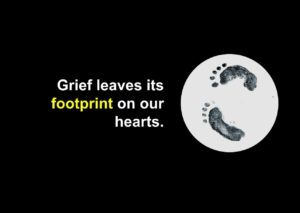November 13th is my son’s seventh birthday. And the seventh anniversary of his death.
Seven is a lucky number. Lucky number seven. Seven days in a week, 7th Heaven, 7 wonders of the world. 7 colors in a rainbow.
Thirteen is an unlucky n umber. I once had a chemistry professor in college from the Ivory Coast who was so superstitious that he refused to even say the number–he would only say 12+1. If the thirteenth of the month ever fell on a Friday, he would refuse to come to school. Friday the 13th is a particularly unlucky day.
umber. I once had a chemistry professor in college from the Ivory Coast who was so superstitious that he refused to even say the number–he would only say 12+1. If the thirteenth of the month ever fell on a Friday, he would refuse to come to school. Friday the 13th is a particularly unlucky day.
Harrison was born on a Friday. And on that same Friday the 13th, Harrison passed away.
I’ve been thinking a lot about luck lately. Chatting with a close friend the other day, who lost her son to bacterial meningitis just days after he was born, we talked about how the way we viewed “the odds” had changed so much since we lost our babies. Before Harrison’s death, hearing that someone had a 1 in 50,000 or even a 1 in 5,000 odd of dying would seem like astronomically high odds, like nothing to worry about. Didn’t we all have higher odds of dying every time we got into a car?
When I got pregnant with my daughter shortly after losing Harrison, I was in shock. And I was scared. People who have never had a baby die have no idea how hard it is to be pregnant again. The fear is overwhelming. People try to comfort you by talking about the “odds” of it happening again, how the odds are in your favor that everything, this time, will be fine. They don’t understand that the odds are meaningless after you’ve lost a child. After lightning strikes, after the unimaginable happens to you, you no longer care about the odds.
But I think about luck and chance and Friday the 13ths every November around this time. I think about my sweet, sweet son that I lost. Was he born under an unlucky star? I wouldn’t normally believe in that type of thing, in signs or omens, in the luck of numbers. But sometimes I wonder.
I remember back to when I first found out that my son had Trisomy 18. I remember talking to a friend of a friend whose son had died from a rare form of dwarfism, a condition that affects 1 in 10,000 children or so. I remember she had told me that it had been eight years since she had lost her son, and she cried when she talked to me about him. And I remember I had been surprised by her tears. I thought that eight years seemed like such a long time, surely the grief was not so fresh. It was a naive and not completely rational thought.
Even after seven years, I cry often when I talk about, or even think about, my son. I’m crying as I write this. Grief and time have a funny relationship. Time doesn’t make grief easier or better. It doesn’t lessen it or make it go away. Time, at best, makes it easier to compartmentalize your grief. To go on with your normal day. Most of the time.
But the grief is still there, just below the surface. The odds are good that the right trigger, the briefest of mentions, the upcoming holidays, the date on the calendar, a Friday the 13th, the month of November, can throw you right back into the throes of it. Grief leaves its footprint on our hearts. That’s the unlucky thing about grief–it never goes away. And that’s the lucky thing about grief too. We carry it with us. Odds are, we always will.

